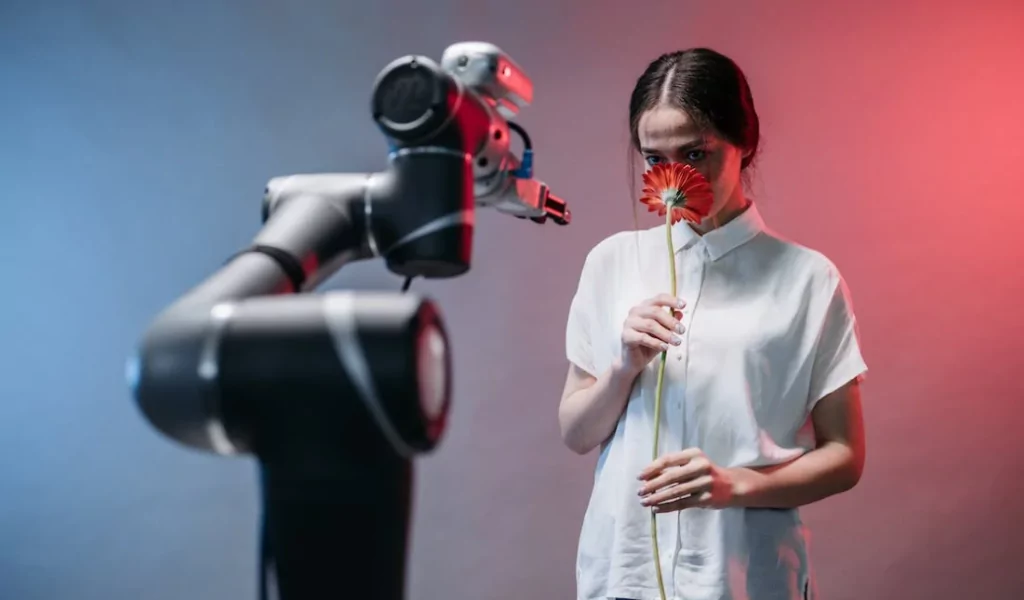The possible effects of artificial intelligence on society and our daily lives seem to be something we all need to be aware of and explain as it becomes more prevalent in everyday life.

Society is already being significantly impacted by artificial intelligence, and this impact is only anticipated to increase as technology develops. Yet not all of it will be for the better.
We’ve put together a list of negative effects of ai that everyone should be aware of.
Unemployment
The first negative effect of AI is obvious. With the development of multiple Chatbots and generative bots, AI can easily displace humans in some jobs.
The efficiency of AI makes it able to perform certain tasks more rapidly and accurately than people.
This will result in a massive removal of the workforce in some fields, creating a long-term unemployment crisis.
Some experts believe that by 2030, there will be 75 million to 375 million workers (3 to 14 percent of the global workforce) that must switch jobs and learn new skills. This demonstrates a wide range of predictions, from optimistic to pessimistic, and illustrates that many experts from the technology and business sectors do not share a common view on the future of our labor market. In short, it’s difficult to predict how many employment opportunities will disappear.
Disinformation and Deepfake
“Extinction Rebellion”, an activist group, created a deepfake in 2020 to produce a fictitious speech by Belgian Prime Minister Sophie Wilmès. The group used AI to manipulate Wilmès’ words in an authentic video address. As a result, there is misinformation. Speaking about Covid-19 and asserting that the pandemic is directly related to “human exploitation and degradation of our natural environment”.
Sadly, this is not the only incident. Future targeted disinformation campaigns will make use of deep fakes, endangering our political processes and polarizing society.
Spreading false information is one negative effect of AI. In fact, with the help of Artificial Intelligence, one can easily produce fake texts or info to promote contradictory viewpoints or tweets

In an effort to cast doubt on climate change, GPT-3, an AI language model, recently generated, “They can’t talk about temperature increases because they’re no longer happening.”
Such technologies could mean the “collapse of reality,” as the Atlantic put it. With deep fakes and online bots spreading disinformation, society may face blurring lines between reality and fiction, subverting confidence in our democratic structures.
Bias and discrimination
“Bias” is not only a cultural and social issue; it may also be found in the technical domain. Design errors, as well as defective and imbalanced data fed into algorithms, can result in biased software and technical structures. As a result, AI simply reproduces existing racial, gender, and age biases in society, deepening social and economic inequalities.
An incident happened when Amazon relied on an AI-powered hiring tool, selecting the best candidates and rating them from one to five stars, much like when customers rate products on Amazon.
However, the AI quickly demonstrated a bias against women as it learned from the data provided to it. This was because the majority of the resumes and applications that it was trained on belonged to men, which led the AI to favor male candidates over equally qualified female candidates. The AI was found to be discriminating against women by rating them lower than men for certain job positions, even when their qualifications were the same.
AI and privacy
Artificial intelligence can bring more problems or risks the more tools or application sets it includes.
One of the negative effects of AI is privacy. Because of our reliance on AI, we can no longer escape from it. We now have access to AI in a glimpse thanks to the reach of technology.
Due to AI’s heightened surveillance, which mimics “Big Brother” in that it constantly monitors us and keeps tabs on the data we use, we are under more scrutiny than ever. For instance, we see shoe adverts on a social media application the moment we leave an e-commerce website where we were looking for shoes.
A threat to Freedom of speech and expression
The way people communicate, acquire information, and exercise their right to free speech nowadays is influenced by technological means. AI can affect how people participate in various activities through search engines or social networks, for example.
AI and algorithms have a significant effect on the availability and supply of information, which serves as the foundation for individual thought. This is comparable to how people’s thinking and choices are influenced by their access to knowledge.
The idea that businesses might manipulate the information present on news websites, social media platforms, and even emails by using AI systems is quite disturbing. This is why vigilance is required because there seems to be a serious threat of information manipulation.
AI is emotionless
While it is true that robots can accomplish some tasks better than humans, there is a drawback to AI that needs to be taken into account. In particular, AI cannot be taught to think unconventionally or creatively, which restricts its capacity to develop innovative strategies. This can be a big problem, particularly when you need to be innovative and solve problems in a creative way. Despite their capabilities, computers can’t take the place of interpersonal encounters because people are social creatures at their core. The bot Quill serves as an illustration of the limitations of AI in this respect.
Conclusion
We still don’t fully understand the negative effects of AI and how it will change our lives. Regulating it and how people, businesses, and political entities use it will need a great deal of work. Up until now, public opinion and governmental reactions have been quite subdued.
Innovation has been proven to be both constructive and detrimental. AI has not yet been created. Only humans are capable of teaching, programming, and using it. We can make it bend in any direction we want since we have some influence over it. Financial problems can sometimes be resolved with its assistance. Yet if all that software is created, used, or trained in an unsafe manner, it might become quite deadly.